The 100 Best Movies of the Decade
In the past 10 years, we’ve watched and reviewed a massive selection of movies. These are the 100 best.

This is part of our Decade Rewind, which runs throughout November. Keep up as we look back at the best, worst, and otherwise interesting movies and shows of the 2010s.
What is your favorite movie of the decade?
First, perhaps we should define what we mean by “Decade,” as there are plenty of interpretations out there. When we say Decade, here at FSR we mean anything released between January 1, 2010, and December 31, 2019. We used similar rules 10 years ago when we published our list of the 30 Best Films of the Decade (2000-2009), where Christopher Nolan’s Memento was named the best movie of the decade and Anchorman at #9 was the one that made all corners of the 2009 internet upset for, well, they may still not be happy about it but we stand by it.
In the intervening decade, we’ve learned plenty about ourselves, our work, and the world — but most importantly, we saw a bunch of movies. In fact, since January of 2010, we’ve published 1,587 full movie reviews. Not all of those movies made this list, but the ones that did were the ones that stuck with us. From hidden gems to massive studio films, these 100 films are a carefully curated representation of our favorites. These are the films that dazzled us, forced us to reckon with our world, presented us with unique ideas, and moved us with words and images and sound.
And despite the fact that this same team curates a thing called One Perfect Shot, we know that our list might not match your list perfectly, but we appreciate you giving it your time and consideration, all the same. Now that we know the rules, it’s worth asking again:
What is your favorite movie of the decade?
The countdown to ours begins here…
100. Bone Tomahawk
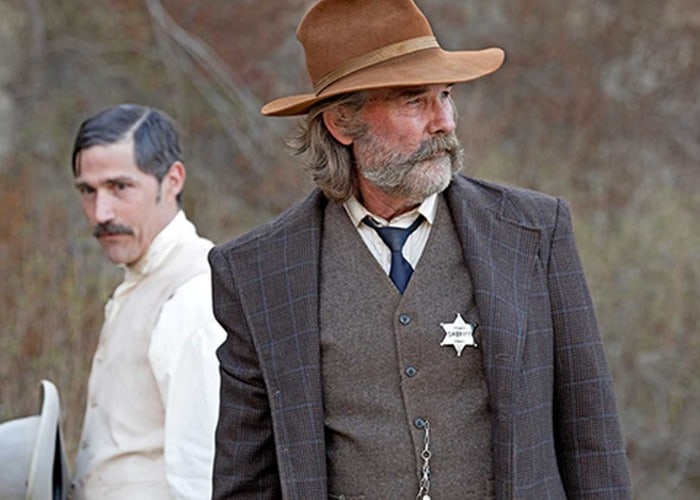
The Revenant and The Hateful Eight were the westerns that received the most attention and success in 2015, but S. Craig Zahler’s debut was a surprising breakout gem. Made on a shoestring budget, yet able to attract an impressive cast — Kurt Russell, Richard Jenkins, Patrick Wilson, Matthew Fox, Lili Simmons — based on the strength of its script, the movie was a passion project for everyone involved. The story is a basic man-on-a-mission journey into the wild frontier, as the film’s heroes set out to rescue Simmons’ character from a tribe of cannibals. What makes the movie so interesting, however, is the way it mines inspiration from extreme horror and Lost World adventure stories to present a version of the Old West that’s brutal, bleak, and shrouded in mystery. The movie also boasts what is arguably the best — or worst — death scene of the decade, though I can understand why it split people right down the middle. (Kieran Fisher)
99. Borg vs. McEnroe
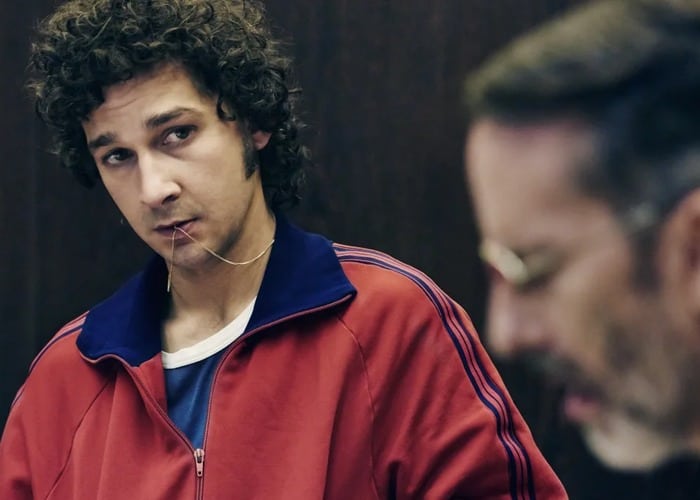
Janus Metz’s beautifully crafted, intensely focused, and brilliantly executed film is about the 1980 rivalry between tennis champ Bjorn Borg and young American upstart John McEnroe, and it uses the framing of their first Wimbledon match to reach back in both of their minds and hearts to explore what made them among the greatest the sport had ever seen. Where most sports films offer up a narrative, this is purely about the creation and meeting of champions. Where most give you a side to root for and a side to hate, this thrilling drama exists in the smallest of subsets (think Warrior and arguably Creed II) in that it leaves you wanting both sides to win. That’s a massive accomplishment and a pure celebration of the sport, the athletes, and the shared love of the game. Sverrir Gudnason and Shia LaBeouf are fantastic, heartbreaking, and empowering as Borg and McEnroe, respectively, and they help make the film one that will sit in your head for a long time. (Rob Hunter)
98. Silence
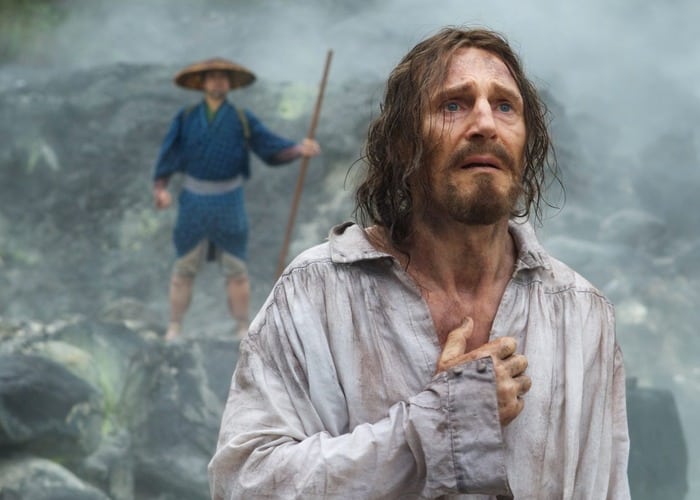
If any film is peak Scorsese, it’s Silence. While its Edo Japan setting couldn’t be further from the gritty New York backdrop most closely associated with his name, this epic story of two young Jesuit priests wrestling with a crisis of faith calcifies the decades-long obsession with notions of belief and doubt that have come to define his oeuvre, from Mean Streets to Kundun. In its essence, Silence is a harking back to the central theme of the words that open one of those films: “You don’t make up for your sins in church. You do it in the streets. You do it at home. The rest is bullshit and you know it.” For Scorsese, it’s clear that true faith has never equaled religious ritual, and nor can holiness exist without humility, ideas that also form the central basis for the Shūsaku Endo novel on which Silence is based. It’s that perfect synthesis between director and source material – along with performances as unforgettable as Issey Ogata’s and visuals that match the epic nature of the story – that makes this adaptation a masterpiece of spiritual cinema. 28 years in the making, Silence is the distillation of a lifetime of spiritual introspection; a long, deep stare into the human spirit that near-blinds us with its unremitting directness. (Farah Cheded)
97. A Ghost Story
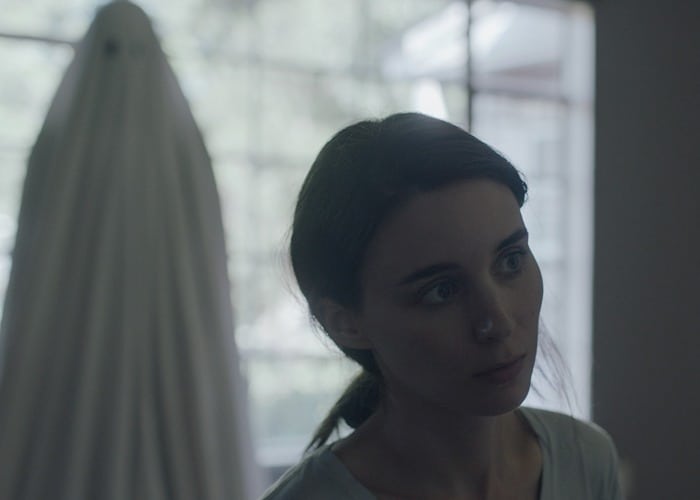
David Lowery’s movie is the type that either leaves you cold or leaves you staggering out of the theater into daylight, amazed by everything from the air you breathe to the ground you walk on. As polarizing as it was to audiences upon release, a piece of visual art that can get the latter reaction out of anyone is undoubtedly worth celebrating. Rooney Mara and Casey Affleck star in a story that offers huge, cosmic answers to life’s biggest question: what happens when you die? In Lowery’s starkly shot, beautifully scored film, the answer involves a white ghost sheet, both the compression and the endlessness of time, and a meditative, habitual movement through the place that mattered when one was alive. The most stunning aspect of A Ghost Story may be how profoundly right its portrayal of a stark, observant afterlife feels. Time, more than anything else, haunts us all. (Valerie Ettenhofer)
96. Scott Pilgrim vs. The World
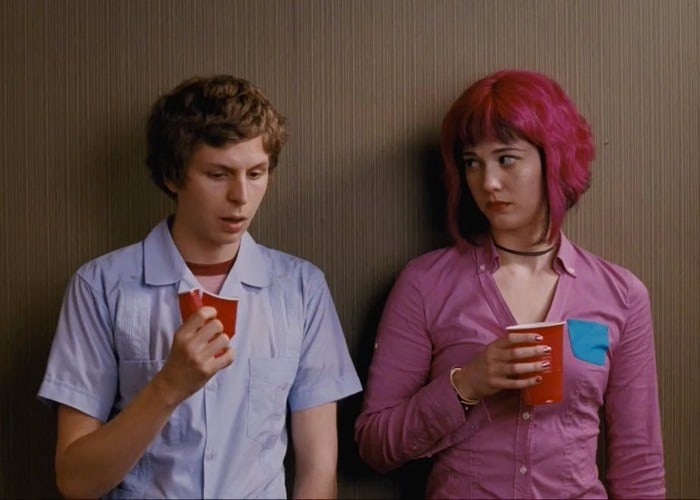
There’s a working theory currently rattling around in my head that Edgar Wright’s 2010 adaptation of Bryan Lee O’Malley’s stellar series of comics might be the best ‘Me in 2010 vs. Me in 2019’ movie. Try it out for yourself on the Google machine: look up a picture of Chris Evans in Scott Pilgrim, then look at one of him in Knives Out. Or how about Kieran Culkin? Once he was the fast-talking, personal boundaries-eliminating roommate of our titular hero, now he’s an insult innovator on HBO’s Succession. On and on down the line, we could go. The point is that Scott Pilgrim vs. The World is a particularly interesting time capsule for the beginning of the decade. It’s also perhaps the best video game movie that isn’t based on a video game. Wright wraps his delightfully formed characters around a plot that is gamified and gloriously energetic.
It’s an energy that would go on to define Wright’s work as a filmmaker throughout the decade. He’d soon go on to finish his Cornetto trilogy with the burst of blue light that was The World’s End, then he experimented with the notion of a fully-formed action musical with Baby Driver. And here’s the exciting part if you’re still with me on the brilliance of Scott Pilgrim: Edgar Wright will be ringing in 2020 with what appears to be a similar movie: a thriller called Last Night In Soho that stars a bunch of talented young actors (including Thomasin McKenzie, Anya Taylor-Joy, and others), was co-written by Krysty Wilson-Cairns (known for her work on Penny Dreadful and 1917), and was shot by Chung-hoon Chung (The Handmaiden, Stoker), whose work is basically a One Perfect Shot vision board at every turn. At the beginning of the decade, we are lucky to be able to turn to Edgar Wright and seek vibrant entertainment. (Neil Miller)
95. Mustang
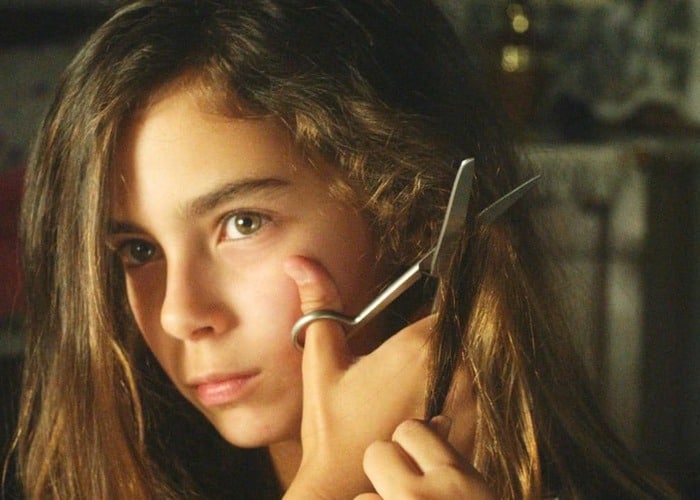
In a decade overflowing with coming of age triumphs, Mustang belongs in the conversation with the highest tier (think: Moonlight, Lady Bird, Eighth Grade, Boyhood). Deniz Gamze Ergüven’s feature debut follows five orphan girls in a village in northern Turkey who are imprisoned in their own home and immediately lined up for arranged marriages after getting caught flirting harmlessly with some boys. It’s painful to watch the life drain from their faces as the reality of their guardians’ antiquated values manifests in a willful totalitarian dominance that, in the case of young girls, values housekeeping over education, ignorance overexposure, and submission over autonomy. But these sisters aren’t defined by their fear; rather, their fearlessness. In their rebellion, it’s tempting to think of them as one unit, but Ergüven fleshes them out as diverse individuals as sharply as she displays them in bond.
Every unfettered moment with them is a breath of fresh air, a respite from the restrictions that bind them as they find ways around their imposed solitude and find life in one another. They have an unparalleled connection as if they were each imbued with an internal language that no one else is even aware of, much less able to speak. The narrative developments do plenty to prove this, but Ergüven does a fantastic job showcasing it through imagery. In one of the film’s most poignant shots, the girls are seen lying in the midday sun on the floor of their room, bodies latticed messily across one another like the top of a homemade apple pie, wrists, thighs, shins, forearms, and heads flush up against each other, no appendages belonging clearly to one person. In one shot, it captures the unifying spiritual, emotional, and kinetic energy that makes our experience of them—equal parts lovely and devastating—so unforgettable. (Luke Hicks)
94. High Life
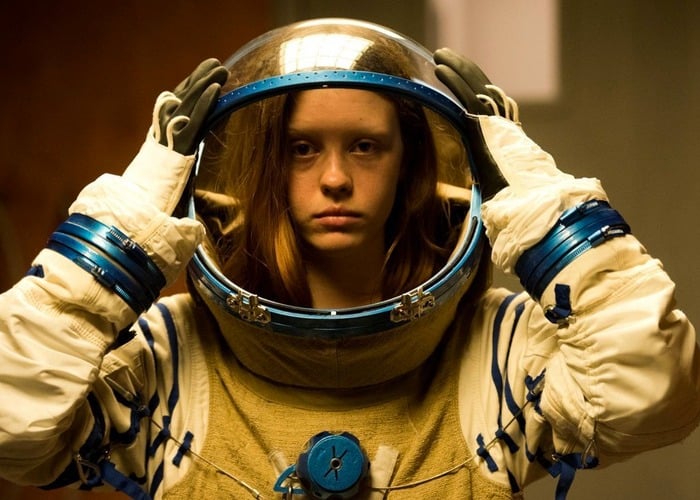
Claire Denis’ films have a scabbing quality, where you can pick and pick and think you’ve reached the end of the cognitive wound to only find that it continues indefinitely. That metaphor might be particularly apt for 2018’s High Life, a film intensely consumed with our physical form (and the fluids inside them). Denis produces a tonal sensibility, something needling and abject and uncomfortably beautiful. The experience of High Life is so physiological, even the sounds of a child breathing leave a ringing in the ears.
Containing an unbelievably dense and sticky performance from Robert Pattison as Monte, a convict who is cast into space to pursue a black hole-related mission, High Life relishes in bleak. Monte and the rest of his crew are subject to fertility experiments by Dibs, played by Juliette Binoche in a role that uses the actress’ gaping empathy to produce an absorbing terror. The grimy ship consumes us, and the very few shots we get of the earth are more unfamiliar and alien than space could ever be. Denis’ penchant for nonlinear storytelling blends eroticism and detachment, while she thinks about the conflicted infinite nature of time and space and the resolutely un-infinite truth of the human body. High Life has answers to questions no one dare ask, but the answers might just be semen and nihilism. (Margaret Pereira)
93. Kill List
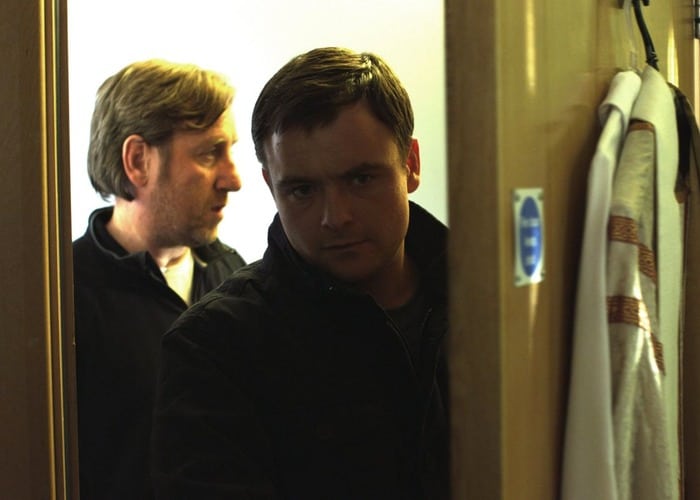
Kill List isn’t just one of the best horror movies of the decade, it’s also one of the best horror movies ever made. Ben Wheatley’s hitman-cum-folk horror flick is a masterclass of ambiguous terror, with a constant sense of dread that’s so oppressive it’s enough to induce anxiety attacks. The story revolves around two hitmen who find themselves at the center of an occult scheme after taking on a job for a mysterious client, all of which leads to one of the weirdest and greatest gut-punch finales you’re ever likely to see. There are no redeemable heroes here, but movies are more interesting when they’re morally ambiguous and full of cult shit. (Kieran Fisher)
92. The Invitation
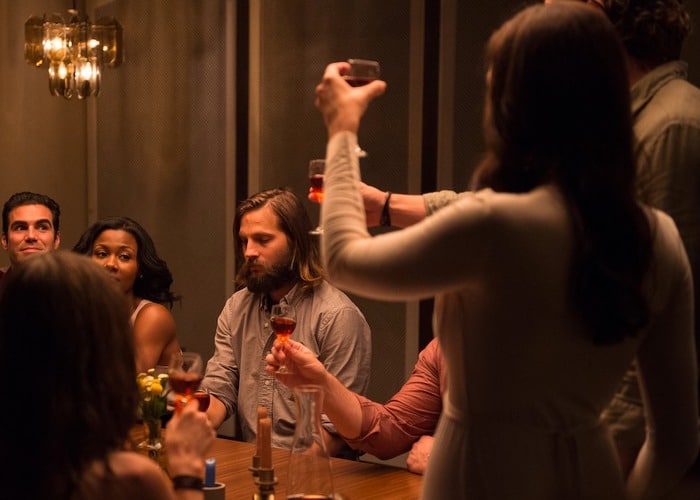
Karyn Kusama’s 2015 feature is an exercise in meticulous tension, and across 100 increasingly suspenseful and nerve-wracking minutes the film reveals a beautifully crafted night of terror. A man accepts a dinner party invitation from his ex-wife and her new man, but what starts as an awkward evening grows far more twisted. Grief is no stranger to the horror genre, but few films tackle it as intimately as The Invitation. Will isn’t just returning to his partner from a broken relationship — he’s returning to the house they shared, and the house where their son died in a tragic accident. As the night progresses, Will’s fragile state leads him to suspect something is amiss with the gathering, but is he right or is he simply losing his grip on reality? From Bobby Shore’s menacingly atmospheric cinematography to Theodore Shapiro’s score blending the melodic with the chaotic, the film draws you in with an emotional tale of loss, denial, and pure horror. There’s a reason why it ended up where it did on our best horror movies of the decade list. No, I’m not going to spoil it. You should’ve read that one already. (Rob Hunter)
91. American Honey
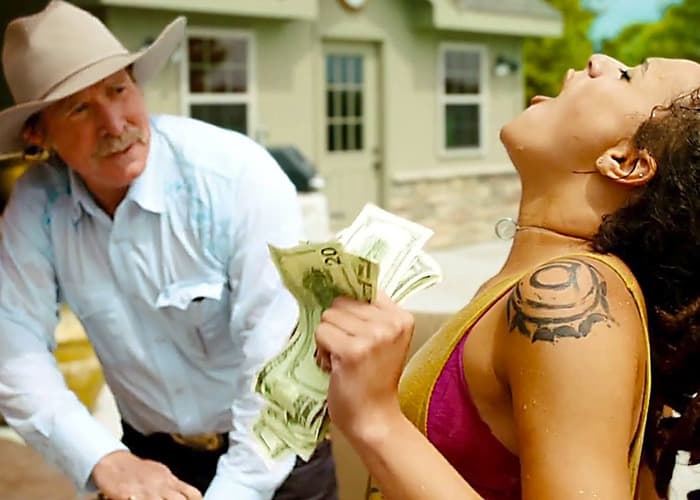
In Andrea Arnold’s best and most ambitious picture, American Honey, the prolific director takes an established brand of unassuming, stripped-back, women-driven storytelling to a whole new level. The film is the perfect culmination of the Arnold thrillers and dramas that have preceded it, and is, in fact, an especially fitting spiritual successor to 2009’s Fish Tank.
American Honey is Arnold at her most daring and indulgent, and the result is absolutely to her benefit. This is a road movie in the purest sense of the phrase. Narratively, a spirited but flawed protagonist, Star (who is played by one of our favorite breakout stars, Sasha Lane), leaves a dire situation at home on a quest for self-discovery. But beyond centering the film on such a compelling protagonist, the film itself is thematically and structurally capricious just like any odyssey. American Honey is brimming with anticipation for what’s out there in the great unknown. It is also full of risks – delightful and scary ones in equal measure – that might not always pay off. Nevertheless, the movie asks us to consider what it’s like to live in the moment anyway. Relish it in its entirety.
So rarely has the subject of youth felt as vibrant, urgent, and essential in a coming-of-age film as it does in American Honey. Through Star’s eyes, the audience is often compelled to act first and think about the consequences later. Even in its deliberately frustrating and open-ended way, American Honey succeeds in emulating the changeable spirit of being young and confused. (Sheryl Oh)

